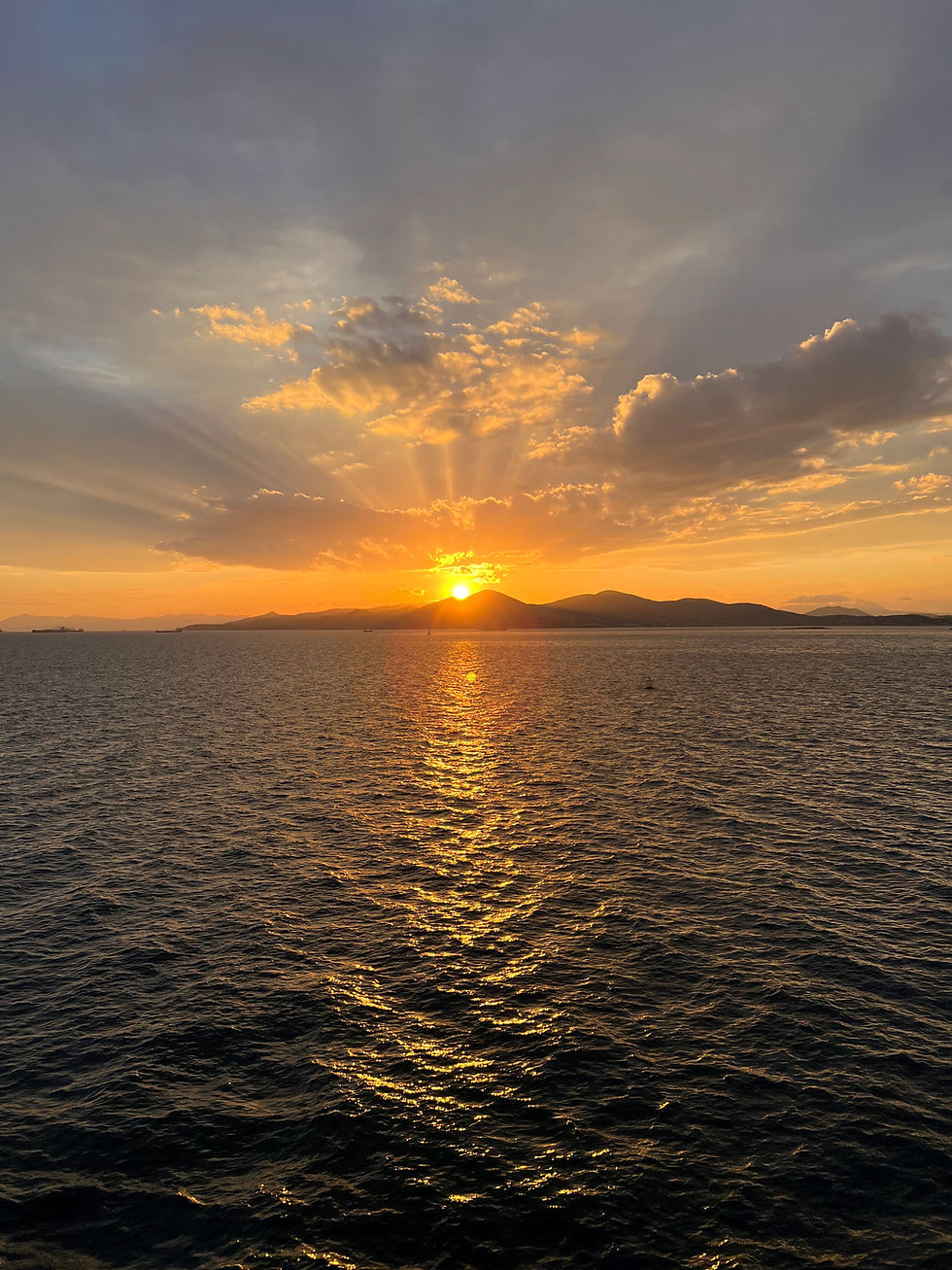
John was an elderly man when the Romans exiled him to the island of Patmos for preaching and teaching the gospel of Jesus Christ. Something like this image of the coastline of modern day Turkey would have greeted John upon waking each morning. Despite his advanced age at the time of his imprisonment, John would still have been required to mine marble there. From what history teaches us about Roman penal colonies, it is difficult to fathom the brutal hardships he endured. But despite all of his tribulations, John was awake and worshiping on the day of the Lord. Revelation 1:10 -11 states, "I was in the spirit on the Lord's Day, and I heard a loud voice behind me like a trumpet saying, 'Write on a scroll what you see.' "
I can't help but think about all of the Sunday mornings that I have slept in and not made the effort to get up and go to life group and church. I desperately grasp for those precious few extra hours of sleep needed to get a jump start on a difficult week ahead. Has that actually ever worked? You would think by now I could have learned that being present on the Lord's Day proves much more renewing for the body and soul than a few extra stolen hours of sleep. But we are all human, and Satan is not very original. He has his way of putting blinders on us and weaseling his way into our thoughts and preventing us from remembering all we know to be good an true about God.
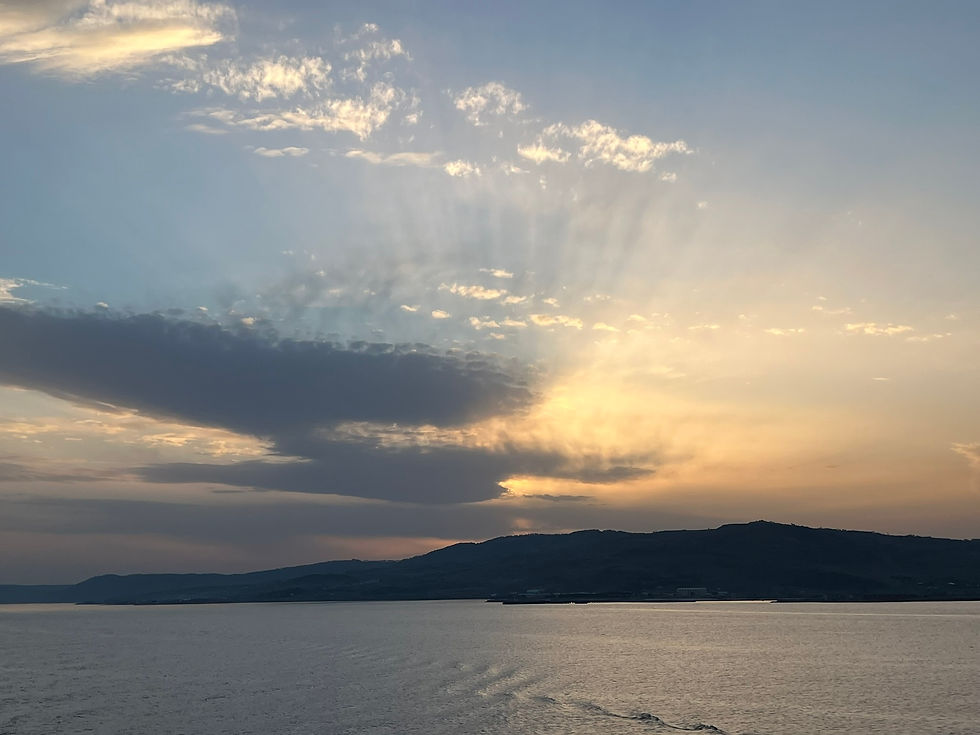
My goal with this blog series is to dive into the book of Revelation and see the relevance to our world today. Revelation 1:3 promises "Blessed is the one who reads aloud the words of this prophecy and blessed are those who hear the words of this prophecy and keep what is written in it." I don't know about you, but I could sure use a blessing, and I truly believe these words.
The English teacher in me will forever begin literary analysis by examining the time period in which the literature was written. I adore studying this stuff, so pardon me as I nerd out for a minute and hit some of the high points.
One of my youth pastors when I was in high school at Parkview Baptist Church did a lesson series for us on Revelation. Fresh from seminary, he enthralled me with theories about this book of the Bible. One of the hypotheses presented claimed that John wrote Revelation to be performed as a play in the grand theater of Ephesus 68 miles away. Loving acting and plays and studying Greek tragedies in college made this idea appeal to me. Of course, there is no way to actually know if this is true or not; however, the book of Revelation fits so many of the standards for a stupendous Greek tragedy. (I know this is during the Roman Era, but remember the Romans took all things Greek and simply changed a few names.)
When I had the privilege of traveling to Ephesus this year, I witnessed first hand the magnificent theater, and many things came into focus. The theater is HUGE. 25,000 could be seated. Getting a good picture proved difficult due to the shear size (plus I did not want one of the cranes performing restoration and maintenance in the pic.)
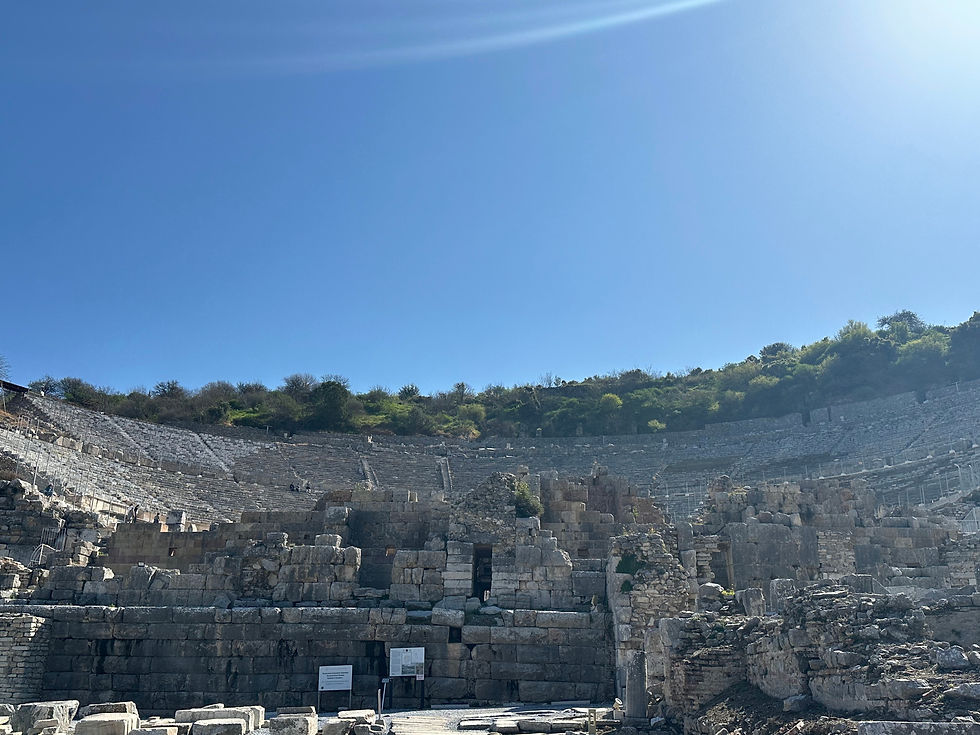
As I stood there and gazed at the theater, I imagined the tragic chorus stepping onto the stage with their seven golden lampstands and chanting the letters to the seven churches. I imagined the grand wooden masks that portrayed the great horned beast to this massive Hellenistic audience. The imagery would have been powerful and appealing to these citizens of Ephesus; however, to a Christian present, the symbolism would have clearly provided a definite message of hope.
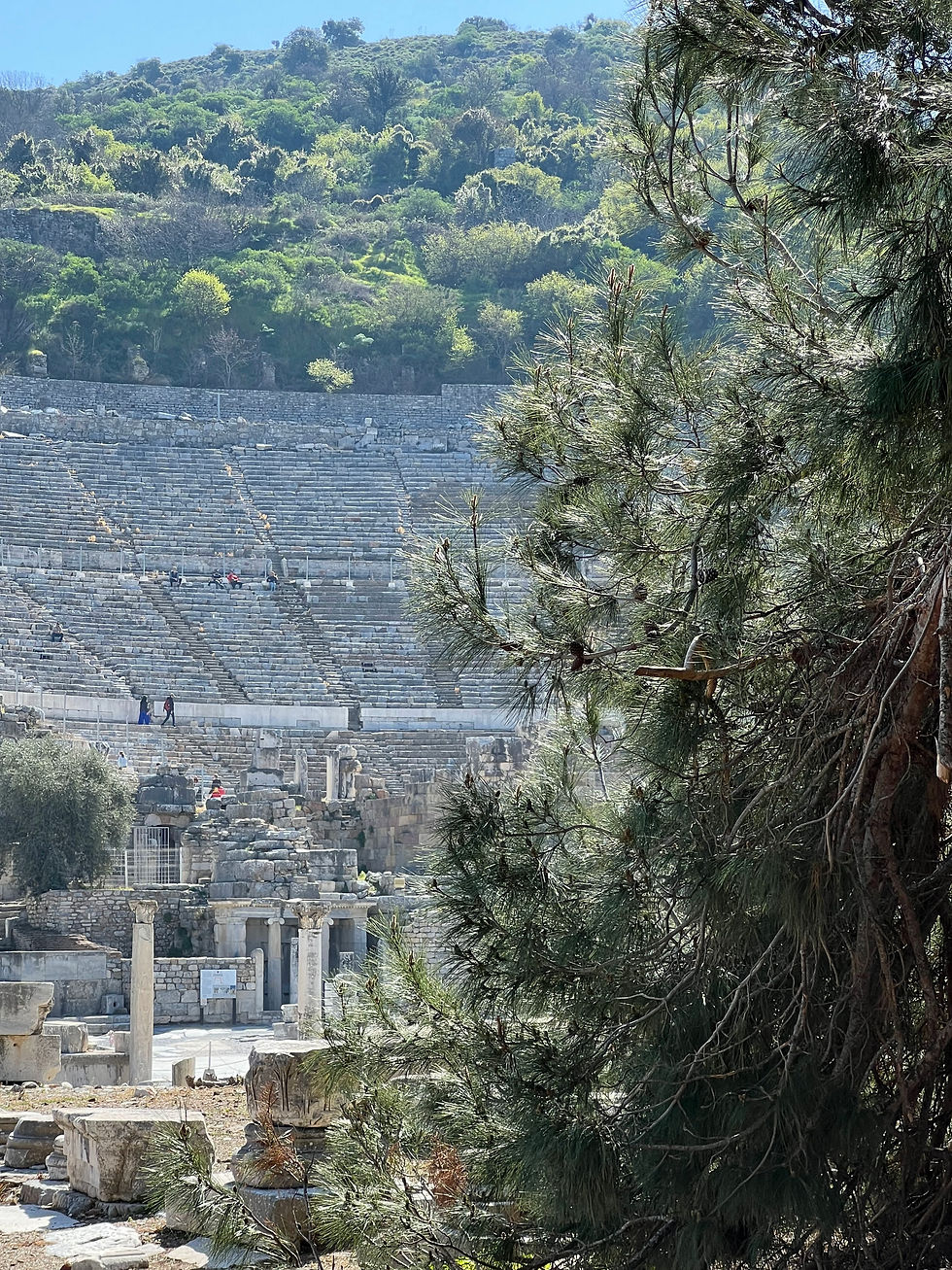
In modern times, we do not understand much of the symbolism in the book of Revelation because history lost the meaning behind so much of the apocryphal code. However, that doesn't mean that we can't study the book and gain a great deal of insight.
Our guide was Muslim, but she vigilantly pointed out all the markings which are part of the apocryphal code and are visible on many stone structures. The theory is that the markings indicated safe places for Christians to gather.

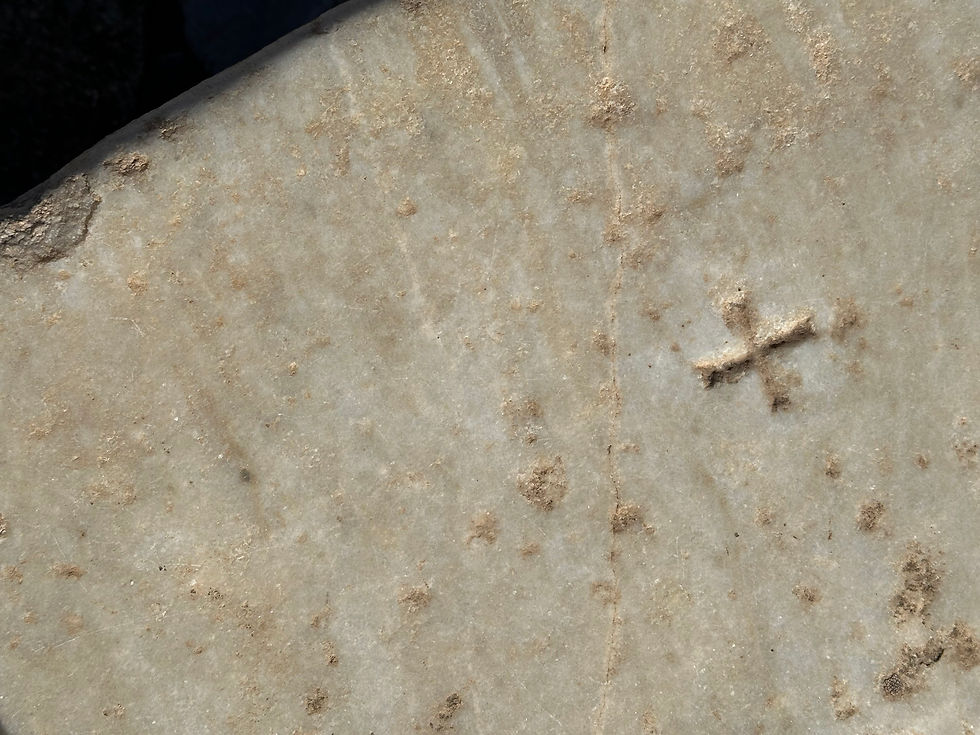

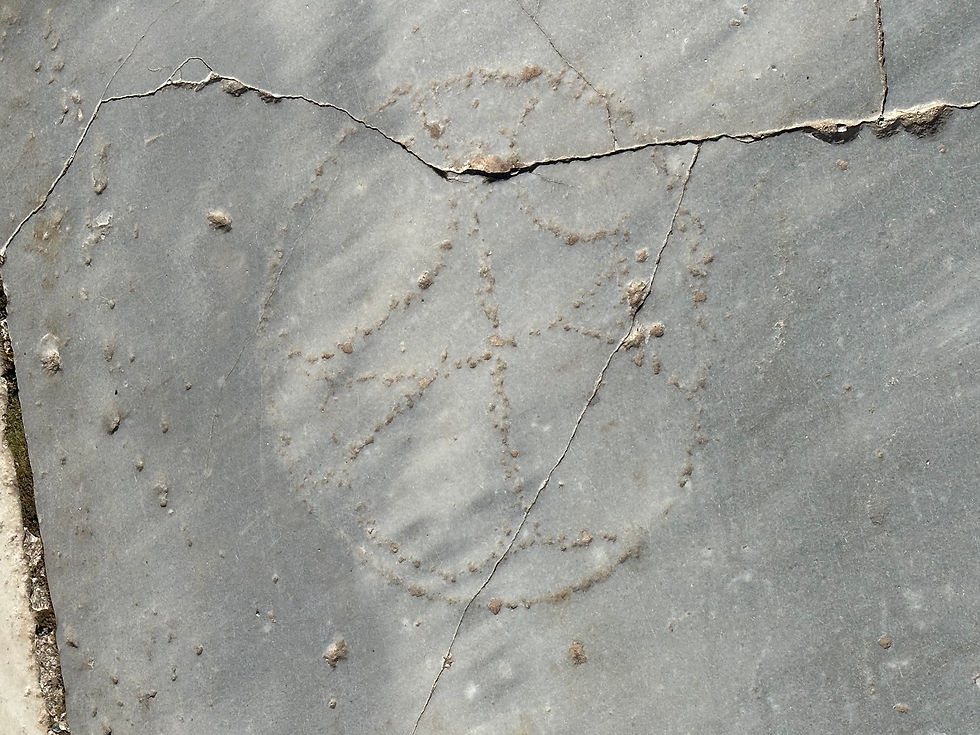
Explaining the size of the city and the well preserved ruins is difficult to do with pictures. Ephesus was a booming community of 250,000 with thriving trade across the empire and remained that way for hundreds of years. But why did the ruins at Ephesus survive more than Corinth or Delphi or so many others?
The citizens of Ephesus built their city on the Aegean Sea but coastlines change over time. Believe it or not, Ephesus had indoor plumbing - sort of. Public bathhouses existed as well as public toilets. The extremely wealthy had their own indoor toilets. Look closely at the terra cotta pipes imbedded in the wall of this large public restroom. The piping tunneled all the way to the coast! When the rains came, the waist would wash through the pipes and out to sea.
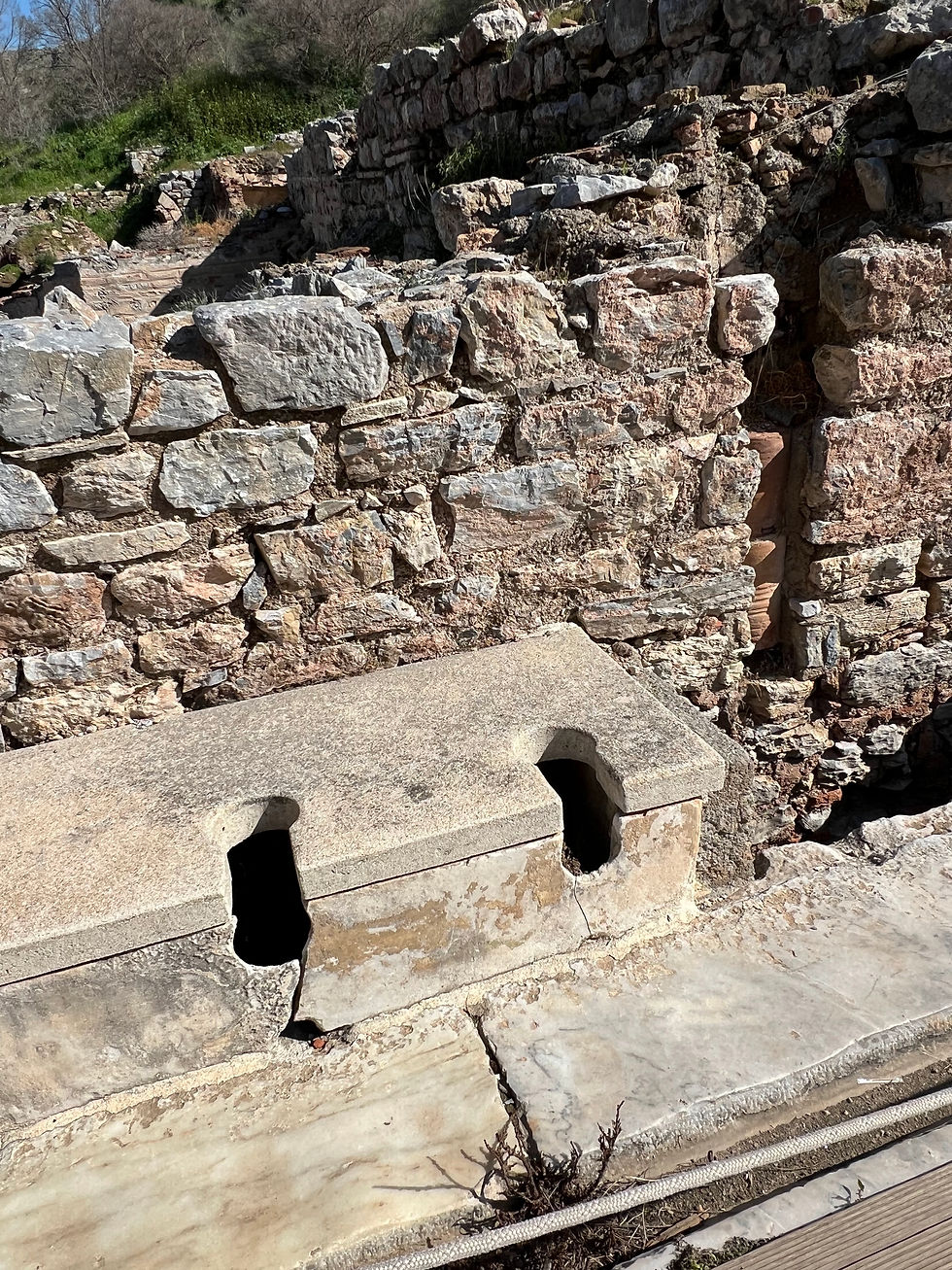
However, over time as the coastline receded, the waste created a marsh land on the outskirts of the city between the city and the sea. It's not hard to imagine that it became pretty disgusting. Mosquito born illness as well as other diseases associated with unsanitary living conditions decimated the city. The plague became so intense that the citizens simply left. They traveled to Sardis, Pergamum, Smyrna, wherever they could go to build new lives for themselves.
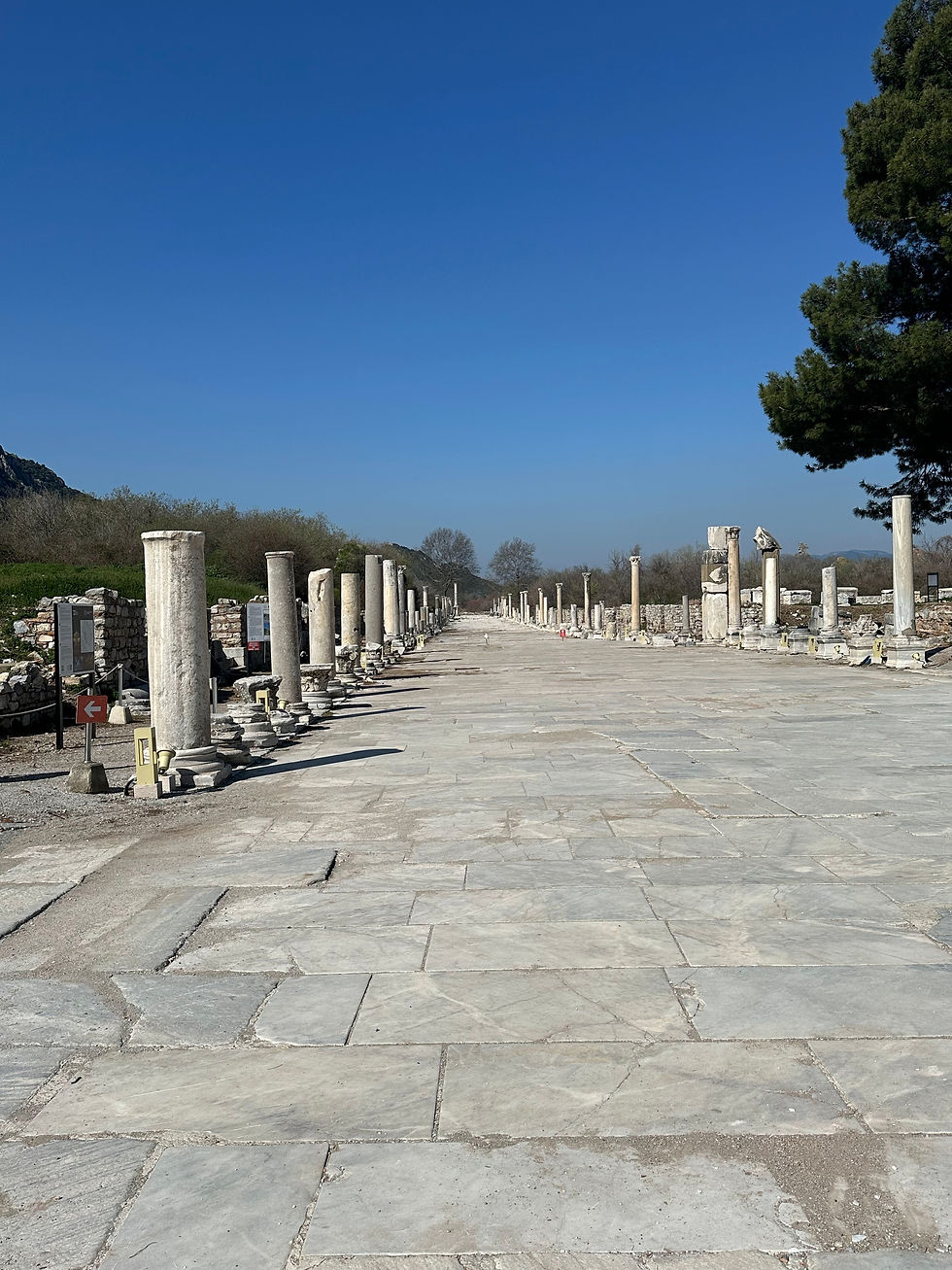
Good news for us - no one built where Ephesus once stood. No future cities tore down buildings and repurposed materials or simply built on top. This is why we have these magnificently preserved ruins today. But think about the implications to Christianity. If Revelation were performed as a play, and if Christians actively met in the city, when they left, did they leave their faith behind?
Now that the time period of Revelation has been established, next English lesson is what does this book bring to us today? God always provides a way to spread his word. Despite the hardships we may currently endure or the joy of our prosperity, God's word is alive and relevant. The Christians of Ephesus listened, learned, obeyed, and then left. They took the Gospel literally to the ends of the known earth at that time.
We are going to endure significant challenges in America in the coming months. Beginning the study of Revelation gives me so much hope. I do not need to worry about what the future holds. God know my future, your future, the future of this country, and the future of this world. All the guidance and assurance we need is right there in His Word.
The quote in the Bible Study Fellowship notes that I am clinging to daily is, "Will you trust the uncertainties of your life to the One who knows the future?" No matter what you face today, God knows your future. He is good, reliable, and unchanging. He is the Alpha and the Omega - the beginning and the end. Thanks be to God
I am excited about sharing more of Revelation in the coming weeks. Sign up for emails so you won't miss the next lesson from #theclassroomcounts
Love this so much! Great insight and perspective!